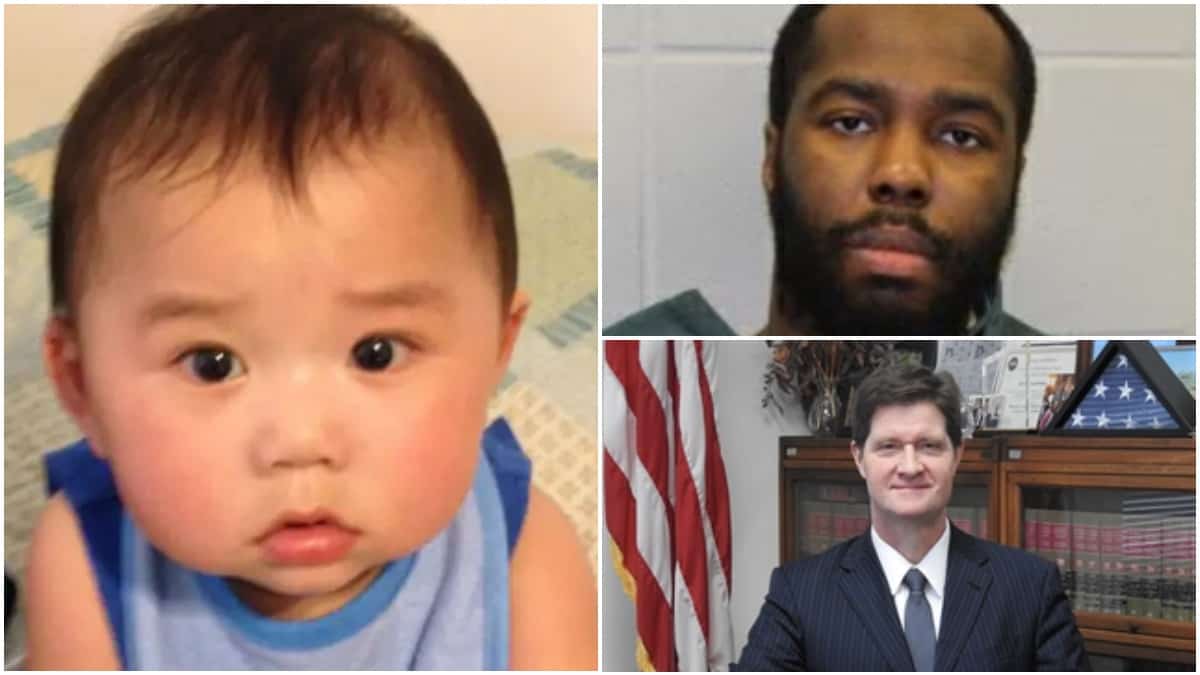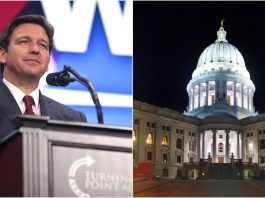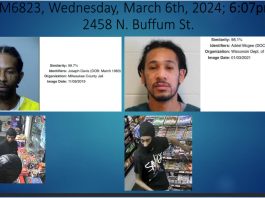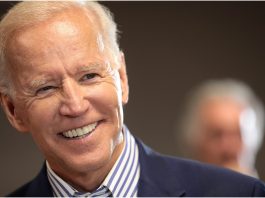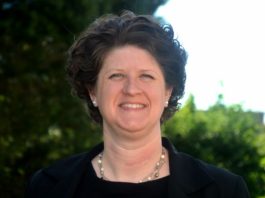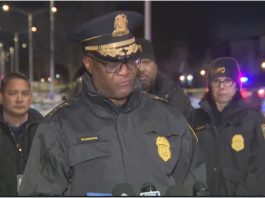A Milwaukee man has spent more than five years in prison, and counting, for a high-profile murder the system knows he may not have committed. Why are John Chisholm and Josh Kaul silent?
The murder of Baby Bill Thao was one of the highest-profile homicides in recent Milwaukee, Wisconsin, history, and one of the most egregious. The 13-month-old Hmong child’s parents had fled Laos, where they were targeted after the Vietnam War, initially finding sanctuary in Milwaukee. By all accounts, the family was quiet and stayed to themselves.
That peacefulness ended two days after Christmas 2014, as Baby Thao played with Lego toys on the floor inside his family’s home at 73rd and Mill Road. Forty-one bullets fired by at least three different suspects smashed through the home, one ripping through the toddler’s right flank and exiting out of his stomach. The child struggled to breathe but didn’t cry. He died a short time later at the hospital.
It seemed an open-and-shut case in a community that was galvanized against violence. Milwaukee police made a big arrest – of a heroin dealer named Darmequaye Cohill – pretty quickly in the midst of intense community outcry over Baby Thao’s death, which occurred on the heels of the death of another child named Laylah Petersen, who was shot on her grandfather’s lap in a remarkably similar but unrelated shooting the month before.
The only problem is that some people – including a determined former state drug and gang agent/Milwaukee police officer who has been trying to get Chisholm’s office to listen for years – don’t think Cohill did it.
“As I am sure you will recall, I had previously submitted what I perceived to be exculpatory information regarding this incident as was outlined within my January 11, 2017 memo that was not, understandably, positively received by either the Milwaukee County District Attorney’s Office or the Milwaukee Police Department,” that agent, Bodo Gajevic, wrote in a 2018 memo. He is a former veteran Milwaukee police officer who has worked as an investigator with the North Central HIDTA (High Intensity Drug Trafficking Area).
The Gajevic memo, which we received from a courthouse source, and which the system has had for years, paints a compelling indictment of the prosecution of Cohill. It says that Steven R. Jordan, a “Bless Team gang” affiliate of Cohill’s, is accused of saying, “I got a motherf*cker sitting in jail doing 60 years for me right now.” Jordan, who has not been charged or arrested in connection with the homicide and who was recently acquitted of a plot to assassinate a former prosecutor/now judge in the courthouse cafeteria, allegedly stated that he shot Baby Thao, but that he and a relative paid $60,000 for Cohill’s lawyer and also paid Cohill to stay in jail for Jordan, the memo alleges. He allegedly admitted that there were four shooters in the car that night, the memo says. Gajevic declined to comment when contacted, but the memo detailed his stance in great detail.
In 2017, a corrections official also raised concerns about the guilt of Cohill, who was known on the streets as “Crazy K.” And that’s just for starters.
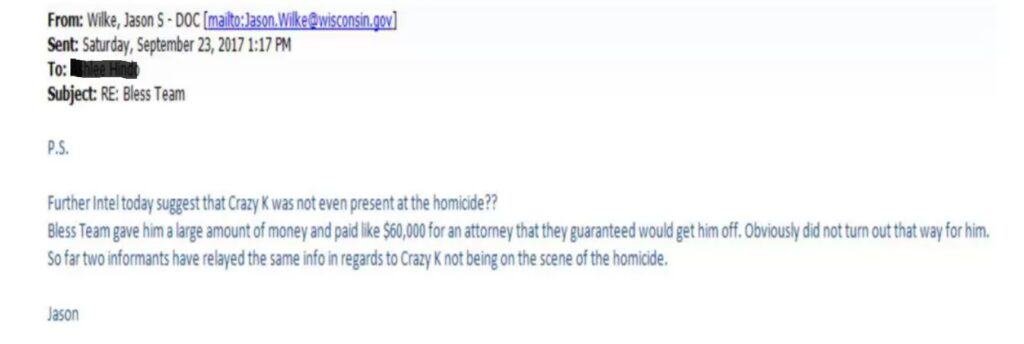
It goes without saying that everyone involved in shooting at the Bill Thao home needs to be brought to justice. Photos of the Thao family home, obtained by Wisconsin Right Now through an open records request to Milwaukee police, show the many bullets that tore through the dwelling on Dec. 27, 2014. One eerie photo shows a baby bottle lying on the ground; there were multiple other children in the home at the time, although they were miraculously unscathed.
The only person ever charged in the Baby Bill Thao murder was Darmequaye Cohill; the community had had enough, and few questioned his conviction at the time.
Somboon Thao, the victim’s father, spoke at Darmequaye Cohill’s sentencing. “We have one life to live,” he said. “He end up killing my son for no reason…it’s a hurt more than I can say. Every time I turn every corner…My son doesn’t deserve it. He born into the earth to enjoy life and now he’s gone. We don’t have anything for us.”
In a very unusual set of circumstances, the Wisconsin Court of Appeals has repeatedly extended the deadline for Cohill to appeal his conviction; court records show the deadline has been extended an astonishing 23 times. Most recently, the deadline was extended, yet again, to March 2022. Prosecutors have not objected.
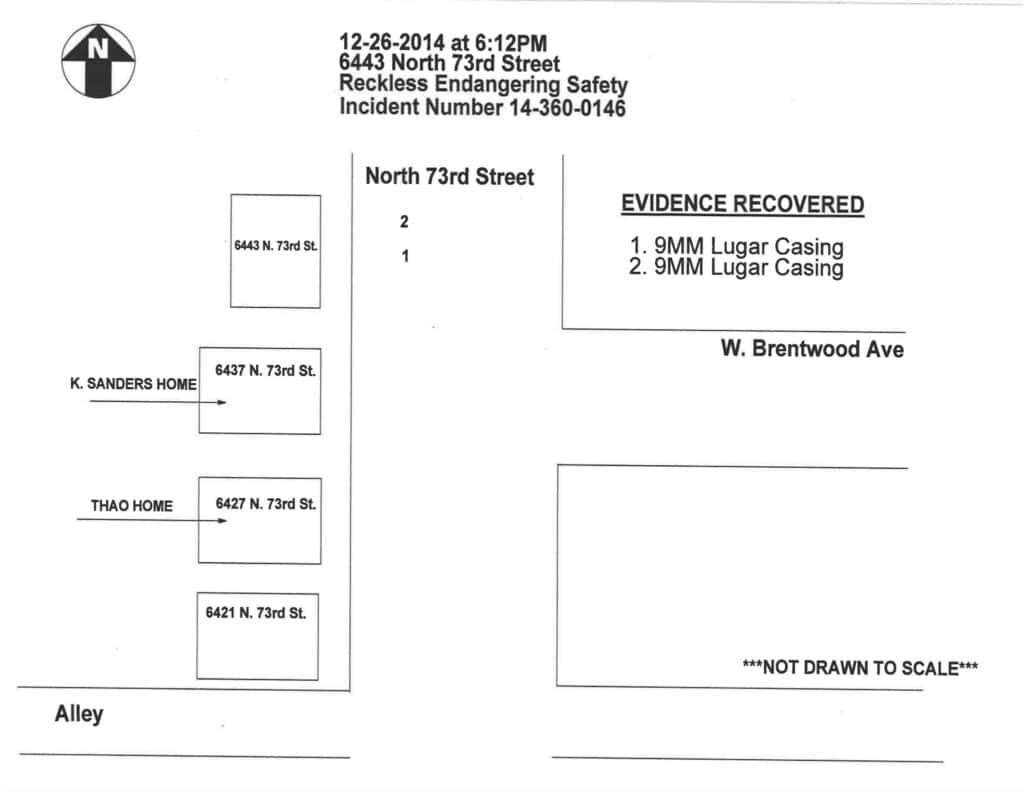
Milwaukee County District Attorney John Chisholm and now state Attorney General Josh Kaul have known about the evidence and claims of innocence for years. Chisholm has known since at least 2017. Darmequaye Cohill sits in a state prison today.
In 2018, the leaked state Department of Justice memo provoked a Milwaukee Journal Sentinel news story that questioned whether police had the wrong man; in it, it was revealed that Chisholm had named a special prosecutor named David Robles to look into the wrongful conviction claims, an unusual move. Chisholm tapped Robles to lead the probe way back in 2018 but has never announced the results.
Wisconsin Right Now has obtained that memo and other documents from a Milwaukee courthouse source who is concerned that, years later, nothing has happened.
We asked the state Department of Corrections for an in-person interview with Darmequaye Cohill in prison. The Tony Evers-run agency refused our request, silencing him from telling his story. Milwaukee police declined to comment. Chisholm’s office declined to comment. Darmequaye Cohill’s defense attorney declined to comment.
Years after the DA launched the new probe, Darmequaye Cohill, who yelled out during his sentencing hearing, “I didn’t do that,” still sits in a state prison, and Chisholm won’t say why. We asked Chisholm’s office what was going on with Robles’ long-languishing investigation: “Is Robles still investigating the Cohill case?” we asked in late October 2021. “If so, why is it taking so long? If not, when did it conclude and what did he determine?” Chisholm’s spokesman Kent Lovern said only that the office had zero comment.
The state prison system shut the door on an interview with Darmequaye Cohill.
“The Warden of the associated facility weighs each interview request individually and considers the safety and order of the facility, welfare of the subject of the interview request and recommendation from Office of Victim Services on potential victim impact,” DOC’s public information manager told Wisconsin Right Now. “Unfortunately in this case, Wisconsin DOC will not be able to facilitate the interview request with Mr. Cohill at this time.”
Gajevic also outlined the concerns about Darmequaye Cohill’s innocence in a 2017 voicemail to the head of Chisholm’s homicide unit, Paul Tiffin, the memo reveals. That memo is a detailed explanation of the evidence that may exonerate Cohill in the homicide, and Chisholm and Kaul have had it for years. Tiffin didn’t return the agent’s call.
That same year, the state Department of Corrections captain relayed similar information to numerous officials – Darmequaye Cohill, known as “Crazy K,” and “Black” – wasn’t the shooter of Baby Thao.
In short, Bless Team Gang members and/or their associates were talking. A lot. Quickly an alternate theory emerged, and four suspect names emerged, none of them Darmequaye Cohill. Milwaukee police reports obtained by Wisconsin Right Now show that those same suspects were on the radar of investigators at the time.
Cohill has aged a lot during his time in prison, photos show.
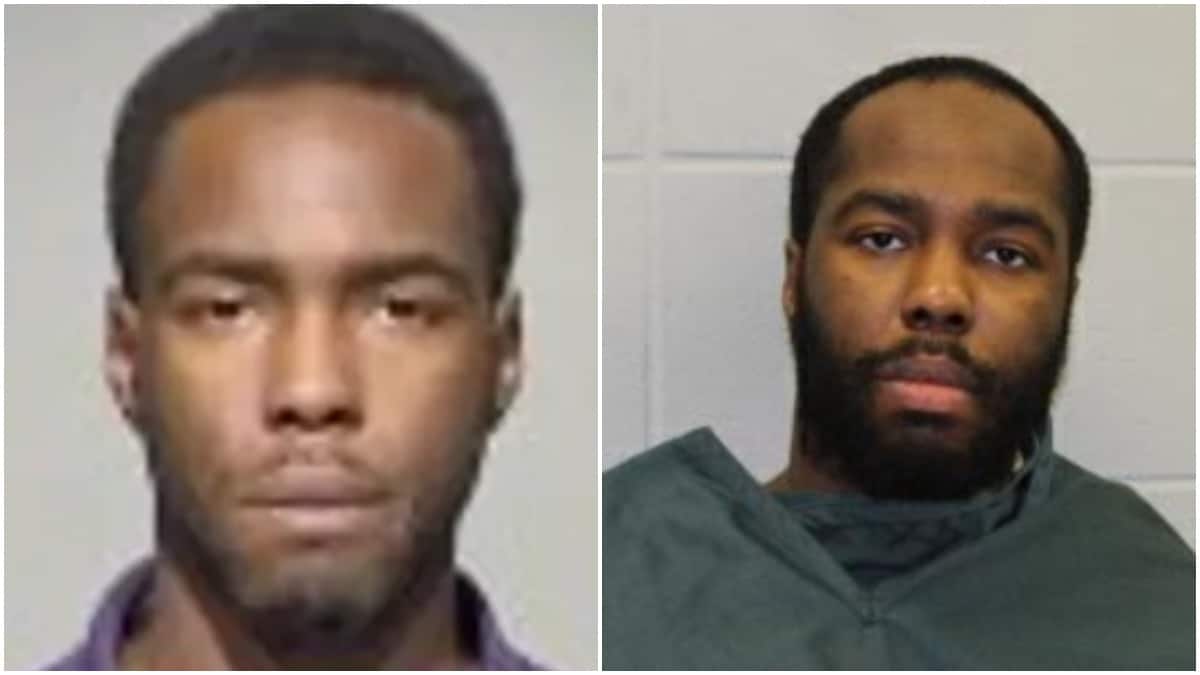
The truth of the Baby Thao shooting lies somewhere within the murky depths of Milwaukee’s drug trade and its gang wars. Records paint a disturbing picture of those violent worlds at a time that some are pushing for less drug prosecution and enforcement. The problem, of course, is that the truth may rest with a series of confidential informants who themselves have shady pasts or something to gain. However, the informants – and there are multiple such informants (at least three), talking to different people, at different times over the years – have added up, giving more credibility to the accounts.
A ‘Star Witness’ Crumbles
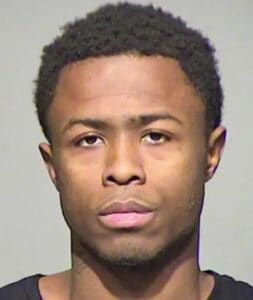
The motive, according to even those who don’t believe Darmequaye Cohill was there when Baby Bill was shot, was tied up in a violent street gang called the Bless Gang and its heroin rivalries. In that, Cohill was deeply involved, so he bears a certain moral guilt if not a technical one. Two years later, in December 2016, Cohill, then 21, was handed 50 years in prison at an emotional sentencing after a jury convicted him of Baby Thao’s homicide and another shooting the day before that is inextricably linked. Although everyone agreed there were multiple suspects, and police reports and a state memo show everyone also knew exactly who they were, no one else ever faced justice.
Prosecutors argued that Darmequaye Cohill’s real target was Kwesen Sanders, a heroin dealer nicknamed K-Money who lived near Baby Thao’s home and had “swiped” Cohill’s phone number to get his drug contacts. He was affiliated with a rival drug gang called the Wild 100s. Prosecutors said Cohill and the other suspects, never charged, shot up the wrong house after shooting, and missing, at Sanders the day before.
The Wild 100s were responsible for their share of carnage on Milwaukee’s streets, including the robbery of the Innovative Optique store in Fox Point that ended with a robber shot dead by an employee, and a teenager who was killed during a robbery on the south side.
Sanders, himself a heroin dealer, was the state’s star witness, and he’s a key figure in Cohill’s claims of innocence. He is the only person who ever identified Cohill as being at, and shooting at, the Thao house that day.
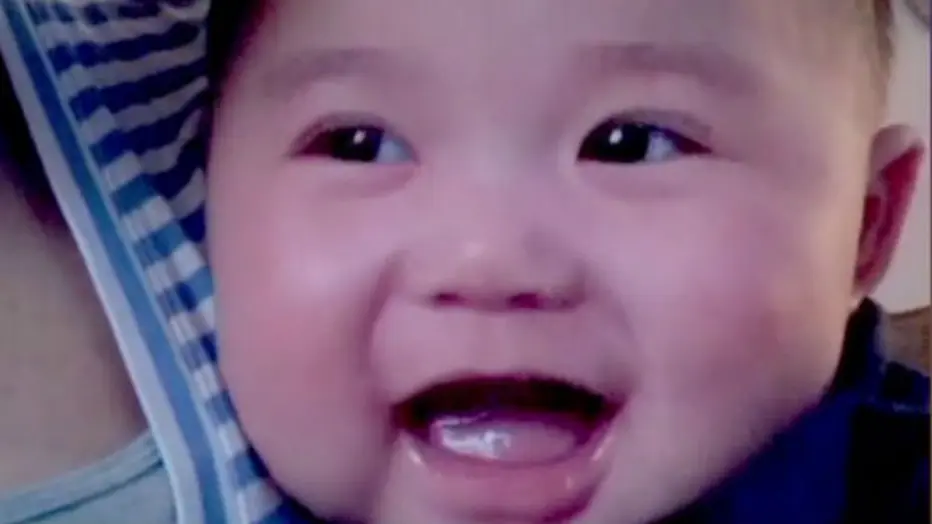
But Sanders, Cohill’s gang rival, got a deal to identify Cohill as the shooter and then went back on it. That deal got Sanders off the hook in yet another shooting case.
“Three or four guys shot 41 rounds into Bill Thao’s relative’s house, and Mr. Cohill wasn’t there,” defense attorney Craig Powell said in court, transcripts show. Powell said the only evidence Darmequaye Cohill was there was the “word of Kwesen Sanders.”
In addition, the defense attorney claimed, there is evidence AGAINST Cohill being one of the Thao shooters. Cell phone evidence presented in court shows that Cohill’s phone was elsewhere at the time, Powell insisted, and Powell said his client was on Facetime and taking a phone call at the time Thao was shot.

The defense attorney said that the prosecution “has hitched their wagon to Mr. Sanders. He is their guy. They bought him. They paid for him with his freedom. He had a shooting case, and he knew it when he came in to talk to them. Gone. Dope case. Gone.”
But when it came time to testify as promised, Sanders did a total about-face and completely reneged on his side of the deal, now insisting under oath that Cohill did not do it. Prosecutors had already given him a pass, and he never faced justice in the unrelated shooting.
“He’s (Cohill’s) not the shooter. What don’t you all get?” Sanders said in court during his dramatic about-face testimony. Prosecutors presented evidence that Sanders had identified Darmequaye Cohill as the shooter to police previously. There was no recording of the police interview with Sanders.
Of Kwesen Sanders, the defense attorney said in court that he was a guy with “six convictions from the street. A guy who’s got an ATF camera posted at his house. A guy who gets shot at apparently year-round. A guy who shoots other people, allegedly, and gets his case thrown out.”

Powell told the judge, “There were 1,728 people in this country since 1989 who have been exonerated — innocent people in prison for crimes they didn’t commit. I’m confident that one day Mr. Cohill is going to be added to that list.”
Was he right?
Threats to Assassinate a Prosecutor

The four other suspects are named in the state agent’s memo; we ran their records. The main suspect, Steven R. Jordan, a Bless Gang affiliate of Cohill’s, is in prison until 2029 for a series of drug cases out of Milwaukee and Waukesha; the second has been serving a six-year prison sentence for heroin and cocaine dealing out of Milwaukee since 2017; the third man was sent to prison for heroin dealing with a dangerous weapon.
But court records say of the third suspect that, in 2020, “DOC is requesting the Court to authorize the inmate’s release and conversion of remaining confinement time to extended supervision.” His address is now given as Milwaukee. “Signed Earned Release Program/Substance Abuse Program Order,” the court noted.
The fourth? He has an open felony case in Milwaukee County for second-degree recklessly endangering safety as a habitual criminal and fleeing an officer. It’s been pending since 2020 as the backlogged court system has been unable to give him a jury trial. He’s already in custody. In another case in 2016, he was sentenced to 13 years in prison for cocaine dealing and fleeing an officer as a habitual criminal.

In short, these guys are in a lot of trouble already, but it’s a far cry from a homicide sentence that would get them off the streets for good.
This story is not just about Darmequaye Cohill or whether he’s a good person (bad people can be wrongfully convicted too); it’s about pursuit of the truth because that’s what the court system is supposed to stand for, and it’s the oath taken by Chisholm and Kaul and others in the system.
It’s about the fact the system had the names of four other potential shooters who, if they murdered Baby Thao, have never been held accountable for it.
All could be back on the streets in a few years.
The investigation was further hindered, the Journal Sentinel reported in 2019, when a correctional officer named Robert Wilcox was accused in 2018 of putting rat pictures next to inmates’ names to out them as informants. That didn’t make people too eager to continue talking.
Yet we’ve learned that there’s a new development. One of the four, Baby Thao suspect Steven R. Jordan, was acquitted in August 2021 of plotting to murder an Assistant District Attorney, Laura Crivello, who is now a Milwaukee County judge. The case was handled by a prosecutor from Kaul’s office, but Jordan was acquitted. It took the Waushara County jury only 1 hour and 17 minutes to find Jordan not guilty of threatening Crivello. According to court records, Jordan was sentenced in 2016 to 13.5 years for other cases involving drugs; the acquittal sets up the prospect that he will get out in 2029, according to Corrections records.
“The b*tch thinks she can’t be touched,” the criminal complaint claims he said of Crivello, but the case was, again, built on the word of prison informants. He allegedly said he wanted “hitters” to attack her in the cafeteria in the basement of the massive Milwaukee County courthouse complex.
“This is the ultimate form of attempted intimidation against the criminal justice system,” Crivello told the Journal Sentinel at the time.
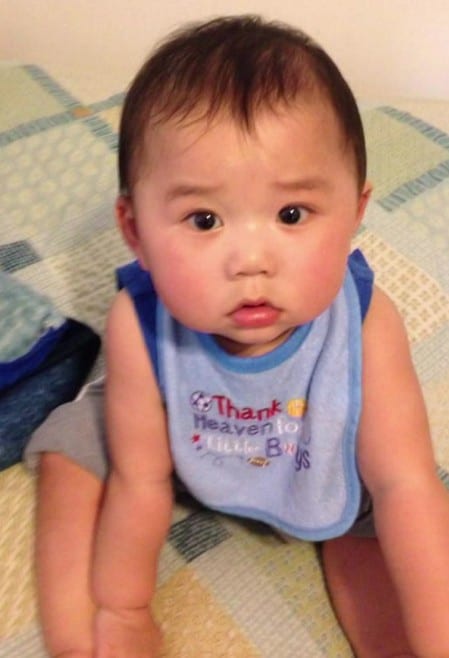
In a police interview right after the Baby Thao murder, Jordan said that he was unemployed, having last worked at Walmart on Capitol Drive. He completed 11th grade at Pulaski High School in Milwaukee and had a previous marijuana and cocaine arrest.
The police reports say he admitted to involvement in an attempted armed robbery and that he had purchased a gun on the street for $350. In the few months before the Thao murder, Jordan had been the victim of several robberies and had been with people who have been shot.
“When confronted with the fact that we believed he was present during the shots fired complaint on December 26, 2014 at 6435 N. 73rd St., Jordan indicated he no longer wanted to speak,” the police reports say.
No Angels Here
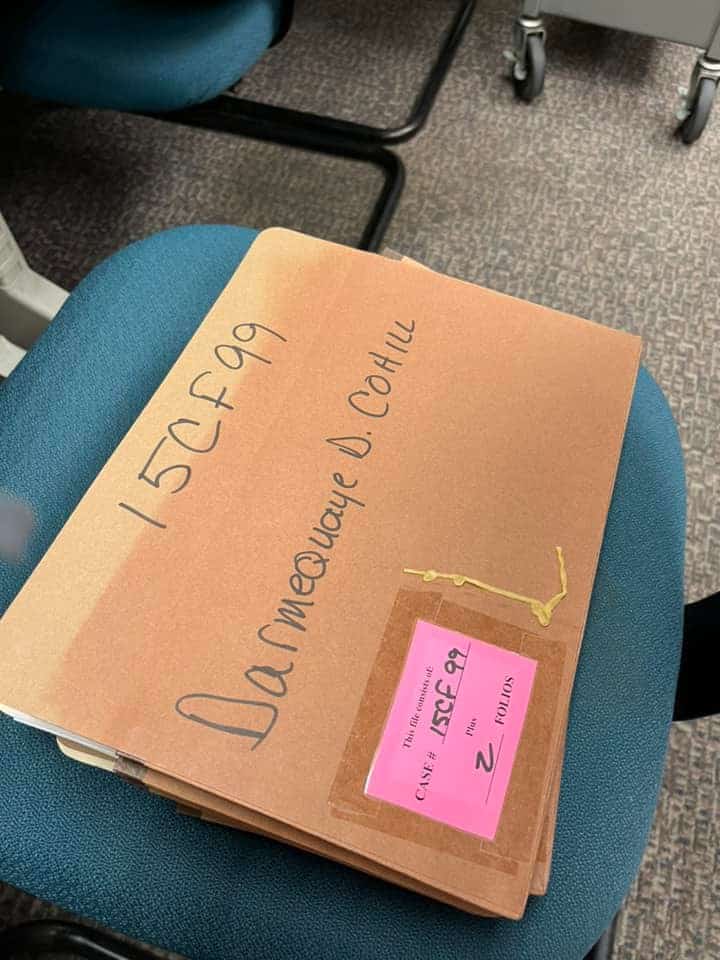
To be clear, Darmequaye Cohill is no angel and minimally the Baby Thao shooting is caught up in the motive involving his drug contacts, but wrongfully convicted people often aren’t saints; it’s why they get looked at in the first place. At any rate, in the American system of justice, people are only supposed to receive punishment for things they actually do. To be blunt, there’s very persuasive evidence that Darmequaye Cohill was involved in the shooting the night before, at least as party-to-a-crime, although he pins that gunfire on Jordan as well. He is serving a much lesser sentence for that offense.
Cohill has a felony heroin dealing conviction from 2014. He wasn’t sentenced in that case until 2016, but the six-year prison term was set to run concurrently with the sentence in the Thao homicide. Cohill’s nickname is “Crazy K,” and “Black,” and the memo states he kept quiet at first about who the real shooters were to protect the Bless Team gang, a violent Milwaukee street gang that trafficked in drugs.
Court transcripts and police reports all paint a similar story of the genesis of the Baby Thao shooting. Darmequaye Cohill was a heroin dealer, and his girlfriend posted his cell phone number on social media, where it was “swiped” and given to a rival dealer – Sanders – who wanted to steal Cohill’s drug contacts.
Sanders stayed at a home next to the Thao residence.
On Dec. 26, 2014, the day before Baby Thao Bill was shot, Sanders sold drugs to a Waukesha County heroin user nicknamed “Action” using the Cohill cell phone. That heroin user grew suspicious and alerted Cohill, whom he knew as “Black,” that someone was pretending to be his cousin to sell the man drugs. The man testified that Cohill asked him to arrange another drug transaction with Sanders outside the home where Sanders was staying. We have pieced all of this together from voluminous court and police records.
As that transaction went down, gunfire erupted. No one was struck.
Various witnesses got vague descriptions of the car used, according to police reports. Invariably, people would describe a black vehicle at the shooting scene (and at the Baby Thao shooting the next day). Cohill drove a black vehicle, but so did Jordan, who quickly sold the car because it brought him “bad luck,” police reports say.
Sanders, when he described Darmequaye Cohill as the shooter (before taking it back), said the Baby Thao gunmen were in a red vehicle, not a black one, police reports say, but many other witnesses said the vehicle was black, and some described two vehicles. An associate of Cohill and Jordan had a red vehicle, police reports say.
No one saw the shooter on Dec. 26.
Cohill immediately landed on police radar after the homicide of Baby Thao because of this night-before shooting; a confidential informant claimed that Cohill and a man known as “Mar Mar” were involved.
“Action,” the drug user, told police that “Black” – Cohill – wanted to “jump out on him (Sanders) so that he could get his phone back.”
After the gunfire on Dec. 26, Action called Black and yelled at him for shooting at them, police reports say, and Black said, “My bad.” Although Cohill’s story differs on this point, it’s persuasive evidence to back up the conviction for party-of-a-crime in this earlier offense.
Later that evening, police reports say, Jordan, “Mar Mar,” Cohill, and a fourth man hung out at Notte Lounge.
Jordan was arrested quickly after the Baby Thao homicide for an alleged attempted armed robbery from September 2014, but he was never charged in the Baby Thao murder. Jordan was allegedly involved in dangerous activities; in December 2014, he drove another man in his later-sold black Chevrolet four-door to the hospital after that man was shot along N. 21st St.
A drug user incarcerated on a warrant told police he heard in jail that Cohill was responsible “for the Asian child being shot and killed.” Police towed Cohill’s Pontiac G6 black four-door. His aunt told police that Cohill was thrown out of his mother’s house when he was 15 because his lifestyle was “dirty.”
When he was interviewed by MPD shortly after Baby Thao died, Darmequaye Cohill confirmed his girlfriend put his cell phone number on Facebook and someone swiped it, a fact he claimed he learned from Jordan. He said a white male drug user from the suburbs told him a person was pretending to be him and was looking to sell drugs. He said that drug user told him about some gunshots being fired in the area.
He said he was at his mother’s house and could not have been involved in that shooting or the murder, but he did admit to a Sept. 10, 2014 armed robbery, in which he and Jordan were accused of going to get money from his aunt, armed with pistols.
On Dec. 26, Darmequaye Cohill said he was with Jordan and another suspect. They were going to beat up Sanders to get his phone back, he admitted, police reports say. When it comes to the shooting the day before Baby Thao died, on the same street, at Sanders, Cohill blamed Steven Jordan.
Cohill told police that Jordan “reached down between the driver’s seat and grabbed a handgun. He then just started shooting in the direction of the vehicle (the drug user) was in.” He got heroin from Jordan to give to the drug user for “putting him in this situation.”
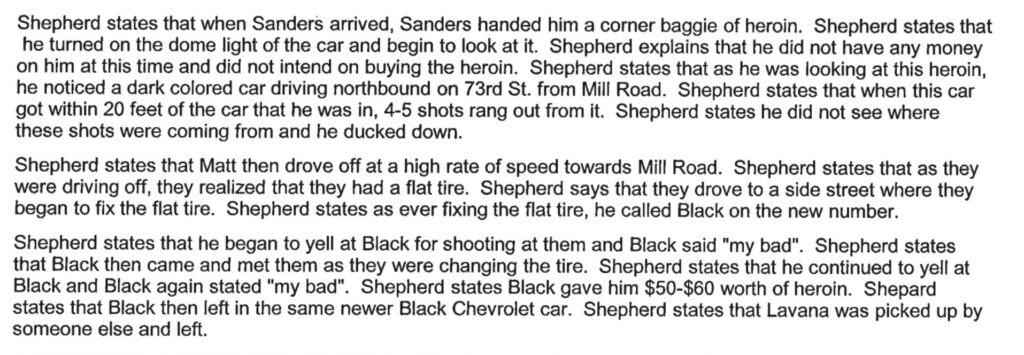
The next day, when Baby Thao died, Cohill told police he wasn’t there – he was selling heroin. It was hardly an alibi that would earn favor with a jury, but he insisted it was the truth.
The next day, three-four suspects returned to the Sanders’ street and opened fire again, hitting the Thao house and slaying the true innocent in this entire mess: Baby Bill Thao.
After the Baby Thao shooting, Cohill claimed that Jordan, and the two other suspects, all came into a house where he was staying and “pulled out guns together. They all said together, ‘I just lit that motherf***** up.” He said that Jordan “had the same gun as the night before,” and the other men were armed too.
Police found a handgun, casings, and bullets in a search of Jordan’s residence.
Sanders’ mother, Tameka Sanders, told police she saw “three black males” running from the scene after the Baby Thao shooting on Dec. 27, and they got into a dark-colored vehicle, police reports show. Tameka Sanders initially believed the motive might relate to an unrelated incident in which her nephew Tedric Sanders “was shot over someone taking someone’s glasses,” police reports say. [Tedric was sentenced to prison because he tried to rob Innovative Optique in Fox Point, and his accomplice was shot and killed by a store employee.]
A woman who works nearby also saw a black car. Another woman did too. One witness saw two dark-colored cars. But police could never get good video, and only Kwesen Sanders claimed he got a good enough look to identify anyone.
Sanders was arrested for possession of heroin and an unrelated recklessly endangering safety complaint. That’s when he revealed that he had seen the four men in a red car open fire at the Thao home on Dec. 27, and he said that Cohill, his drug rival, was one of them. He did not name the others, but, police reports say, Sanders initially claimed he saw Cohill “walk directly to the street, raise his arm, and while holding a handgun fired two to three times.”
Chisholm’s office decided to deal with Sanders, the prosecutor, Antoni Apollo, admitted in closing arguments.
“You provide us with the information on the Baby Bill killing, and we won’t charge you with the unrelated shooting case,” Apollo described that deal in court. At the time, Sanders had been arrested on an unrelated shooting incident; he was out on bail for a heroin offense.
Sanders does have a 2015 narcotics possession conviction, a felony. He received 90 days in the House of Correction and probation for that. He has a string of misdemeanors between 2014 and 2016, but nothing since, and no charge for a shooting.
In a very important piece of evidence, the Wisconsin State Crime Lab was sent the casings from both the Dec. 26 shooting and the Dec. 27 homicide of Baby Thao and determined that some were from the same gun. [Josh Kaul a few years later abolished a federal gun tracing program used by police departments to match bullets used in multiple crime scenes.]
That was enough to get Darmequaye Cohill charged with murder. Everyone else skated.
The prosecutor later said in court, “We’ve had enough of the individuals dealing the poison that is heroin.” He said Baby Bill was a child who “very well could have done significant things.”
The defense attorney, Craig Powell, said that Cohill dropped out of school in the 11th grade and got a GED. He was from a split family and had no guidance growing up.
He noted: “Nobody on the 26th saw Mr. Cohill shoot a gun.”
He stressed: “Mr. Cohill was not present at 73rd and Mill Road on Dec. 27 when Bill Thao was killed.” He was in West Lawn projects on the phone with a man and on FaceTime with a woman, he said. There were four shooters. None of them was him, said Powell.
Powell called a cell phone technician to the stand. He said that cell phone evidence showed Cohill’s phone pinging off a tower at 6:09:04 and 6:14:30. The Thao murder occurred around 6:13. In one case, it was “Action” calling for drugs.
The prosecutor said that the cell phone expert couldn’t prove the cell towers were all working, and that the FaceTime call was not demonstrably answered or by whom. They said Cohill hid out in a hotel with his girlfriend after the Baby Thao shooting and told her that police might be looking at him for the death of that baby.
In 2016, after a jury trial, Darmequaye Cohill received a 15-year sentence with 10 years in prison for the earlier shooting; he’s got four years to go. However, he received a consecutive sentence of 60 years, with 40 years confinement time, for the Thao homicide.
The judge, Jeffrey Wagner, called the motive “greed, violence, arrogance.” He called the shooting “outrageous and evil…This young child was playing Legos with his family.” The judge asked Cohill, “Why should there be hope for yourself?”
“Because I didn’t do that,” Cohill responded.
‘He Did Not Return the Call’
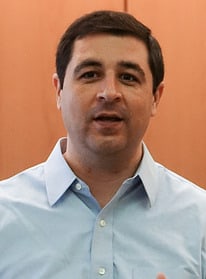
The story picks up with Gajevic, the courageous former Milwaukee cop who later went on to work as a narcotics investigator for Kaul’s Department of Justice’s Division of Criminal Enforcement. He wrote the key memo in question back in January 2018 to his superior at DOJ, Deputy Administrator Jason Smith.
Thus, Kaul’s office is well-aware of the innocence claims (Kaul took over in January 2019), yet has done nothing, even though the DOJ handles criminal appeals.
Crivello and Gajevic have spoken together about Milwaukee drug trends and its heroin trade and gang violence, and they’ve played a role in the area’s High Intensity Drug Trafficking Area. In short, they’re subject matter experts.
In the memo, Gajevic wrote that he was submitting the memo at Smith’s directive “regarding recent exculpatory information obtained” relating to the homicide of Thao and Cohill’s reckless homicide conviction. He said he learned the information through an “unrelated threat investigation” being investigated by himself and Special Agent Todd Higgins that was “previously being handled by investigators of the Milwaukee County District Attorney’s Office.”
That investigation? The Crivello threats probe into Jordan, described in the memo as the “leader of a notorious and dangerous Milwaukee Drug Trafficking Organization identified as the ‘Bless Team.'” Crivello had prosecuted Jordan.
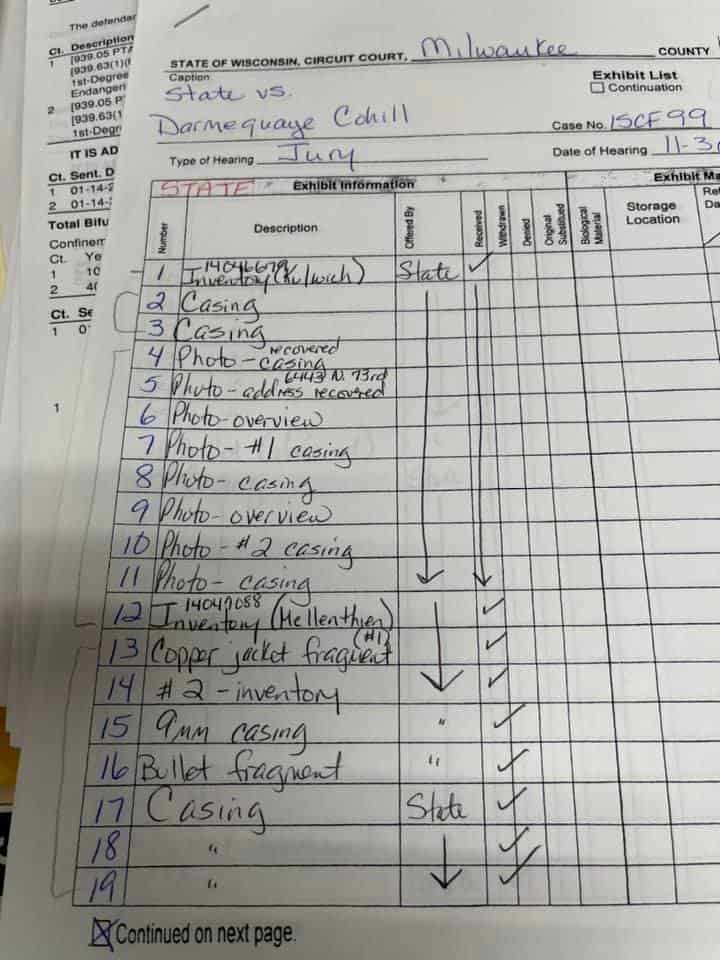
As the special agent was reading a recorded interview from 2017 of a confidential informant who was a prison inmate, he realized that it contained a potential bombshell. “This confidential informant/inmate provided a statement alleging that JORDAN confessed to him of having killed…Bill Thao, along with other individuals, and further stated that Cohill was not involved,” the memo states.
That statement was obtained by an investigator with Chisholm’s office and two Milwaukee police detectives; but that wasn’t all.
This information, wrote Gajevic, was “consistent with what I reported approximately one year ago in a previous memorandum.”
In other words, the concerns about Cohill’s guilt dated back to 2017. In the memo, Gajevic does not mince words.
“As I am sure you will recall, I had previously submitted what I perceived to be exculpatory information regarding this incident as was outlined within my January 11, 2017 memo that was not, understandably, positively received by either the Milwaukee County District Attorney’s Office or the Milwaukee Police Department,” he wrote.
“This memorandum was based upon an interview of a ‘Bless Team’ gang member who not only was familiar with this homicide but was present following the homicide when other ‘Bless Team’ gang members confessed their involvement in this shooting/homicide at an impromptu gang meeting where a plan was developed to protect their role in the commission of this crime from being revealed. At that time, this confidential informant provided what appeared to be a credible alternative theory when examining the whole tenor and import of that homicide investigation and trial,” says the memo.
He added: “I am also aware of additional possible exculpatory information consisting of correspondence, confidential informant(s) interviews, and jail recordings discovered, developed, and submitted by members of the Wisconsin Department of Corrections’ Strategic Threat Group (STG) disseminated to North Central HIDTA ISC as well as to other individuals throughout the state regarding the same alternative theory to this homicide that they developed themselves.”
But is the informant who obtained the alleged confession credible? “In assessing the credibility of this confidential informant/inmate who obtained this confession, you should be aware that his statements to investigators regarding the alleged threats levied by JORDAN towards the Milwaukee County Assistant District Attorney have been verified and corroborated by two other confidential informants/inmates also housed at RGCI,” the memo says. “In addition thereto, it is also important to note that this confidential informant/inmate has been actively utilized as a confidential informant by the Milwaukee County District Attorney’s Office, the Milwaukee Police Department, and the F.B.I. Southeastern Wisconsin Regional Gang Task Force since at least April of 2016 having provided verified credible information leading to multiple drug arrests, individuals involved with firearms-related offenses, as well as including information leading to arrests on open homicide investigations and has agreed to testify in open court should it be necessitated.”
The informant also had pending homicide and heroin dealing charges, though, and was seeking consideration relating to those charges. According to the memo, Gajevic believed that other evidence presented in the trial, such as witness testimony and other evidence, supports the theory that Cohill didn’t do it.
The new information stemmed from a 2015 investigation by HIDTA into a heroin and cocaine dealing ring that was also involved in carjackings, shootings and motor vehicle thefts in the Milwaukee area.
Two individuals – Steven R. Jordan and his twin brother Stephen S. Jordan (not one of the four suspects) – were accused of being “high ranking members” of the Milwaukee street gang called the “Bless Team,” the memo says.

Steven R. Jordan was arrested and charged with multiple felony offenses in Milwaukee and Waukesha County and was sent to prison at the Red Granite Correctional Institute. He had five different criminal cases in Milwaukee County and two in Waukesha. He’s currently being held at the Wisconsin Secure Program Facility, according to DOC records.

In January 2017, Gajevic wrote a memo outlining his concerns to Chisholm, Lovern and Assistant Attorney General Jacob Corr (who, incidentally, is the prosecutor who handled the bail case involving one of Darrell Brooks’ pending felonies before the Waukesha parade attack of 2021.)
The memo came about through a confidential source who was a member of the Bless Team gang.
Information from conversations with this source in December 2016 and 2017 was conveyed to Milwaukee County District Attorney Paul Tiffin, head of Chisholm’s Homicide Prosecution Unit, on January 4, 2017, in a detailed voicemail message. He didn’t return the call.
SAIC Jake Jansky of the HIDTA Heroin Task Force requested an email timeline.
Gajevic also authored an earlier memo and gave it to Crivello, then an ADA, S/A James Krueger, and SAIC Jake Jansky. She gave it to Chisholm, Lovern and Corr. But “no response was ever received,” so another memo was created.
What does that January 11, 2017 memo say?
It describes an interview between Gajevic, Krueger and a Wisconsin Department of Justice Confidential Source.
The source volunteered information about the Cohill case. The source told the agents that “Cohill was not involved in the shooting of Bill Thao.”
He obtained the information from “confessions by the co-actors.”
Again, Cohill was no angel; this source says he was involved in shooting at Kwesen Sanders the day before, on December 26, 2014, regarding the theft of a phone or phone number.
However, on the next day, December 27, 2014, four different people responded to the house of Baby Thao and “shot into the wrong residence, fatally wounding Bill Thao.”
Asked who they were, the informant identified Steve Jordan and three other Bless Team gang members whom we aren’t naming because they haven’t been charged.
The source stated the shooting “was described in detail to not only the CS but to additional multiple members of the Bless Team while inside of Jordan’s loft apartment on Reservoir Street a day after the shooting wherein Steven Jordan was explaining to the individuals present what had transpired and who was all there.” The memo names the other three men.
One of those other men also told the confidential source that the other three men were involved in the shooting. One of those men told the source “that they all had guns and shot into the wrong apartment.”
He said they had driven to Thao’s home in Jordan’s black Chevrolet Malibu and these “four actors shot into the residence while inside of Jordan’s auto.” After that, Jordan said he was going to take the car to the Chicago area to be shredded, the source told police, according to the memo.
He claimed that Darmequaye Cohill initially was told not to say anything about who did the shooting because the men told him no jury would find him guilty because “he wasn’t there.”
The information was relayed to Cohill’s defense attorney, Craig Powell, who said he had other sources who could corroborate the statement.
That source was later sentenced on multiple charges relating to heroin dealing and auto theft.
At that time, the attorney for Cohill told Gajevic that “neither the Milwaukee County District Attorney’s Office nor the Milwaukee Police Department had ever interviewed or attempted to interview the confidential source regarding the information contained within the above memorandum.”
He was not given any sentencing credit for the information as a result.
On Sept. 21, 2017, captain Jason Wilke of the Department of Corrections Strategic Threat Group sent an email to multiple people including HIDTA.
That email involved allegations of heroin dealing at the Red Granite prison.
It stated that an informant had provided information about Jordan and the Thao homicide, revealing the caliber of weapons and stating that the “four shooters were trying to kill the dope dealer that stole the number but accidentally killed the Hmong child.” The number referred to was Cohill’s “dope phone number that was placed on Facebook.” The information alleged that Jordan took part with three other shooters.
The email says Jordan made phone calls from prison after learning Darmequaye Cohill was “talking about others involved in this homicide” and, the email alleges, “the phone calls appear as though he may have been involved in this shooting as he was very nervous.” Wilke had monitored the phone calls. There was also a call between Jordan and his mother that is described in the memo in which they discussed Cohill. Jordan said Cohill was saying “sh*t” but he knows he wasn’t lying, the memo alleges.
In a September 2017 email, Wilke wrote, “Further intel today suggest that Crazy K was not even present at the homicide? Bless Team gave him a large amount of money and paid like $60,000 for an attorney that they guaranteed would get him off. Obviously did not turn out that way for him. So far two informants have relayed the same info in regards to Crazy K not being on the scene of the homicide.”
By November 2017, Cohill relayed to Corrections officials that he was ready to talk but he wanted his attorney present and wanted to wait until his father moved out of Milwaukee “because he fears for his father’s life.” He wasn’t worried about Jordan; he was worried about an unidentified person named the “Big Guy,” who “has more power and influence that (sic) all of the Bless Team put together.” He was the “guy from Chicago that is supplying all the drugs to the Bless Team.” The Corrections official relayed a street name he thought was this man.
The memo circled back to the later interview with a confidential source involving an investigator for Chisholm and two MPD detectives in 2017 relating to the Crivello threat investigation.
Although Jordan was acquitted of threatening Crivello in August 2021, his mother, Latasha Savage, 47, was sentenced to probation and a stayed prison term in 2019 for a charge of conspiracy to commit battery to a prosecutor.
Table of Contents
